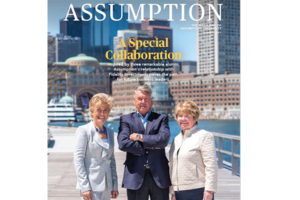
America’s increasingly partisan politics has been consumed recently with allegations of lawbreaking. A special counsel has already been appointed to assess whether President Donald Trump or his associates had inappropriate connections to the Russian government. Republicans have recently countered that a comparable counsel should be appointed to investigate malfeasance by former Democratic presidential nominee and Secretary of State Hillary Clinton. Questions arising from these accusations are important, but not as important as what is undoubtedly playing out daily: an assault on the unwritten rules of political life. These may prove to be even more important – and violations of them of more enduring consequence – than any technical crimes that may have occurred.
The assault on custom is most evident in, but neither started with nor is limited to, the presidency. It is no surprise that President Trump is a nontraditional chief executive. He was elected to be one. But he is also bulldozing unwritten rules of his office at a stunning pace. His serial tweeting, his alleged meddling in investigations, his belittling of political opponents and, most troubling, his repeated and brazen distortions all violate custom, not law.
The same is true of accusations against Democrats, such as allegations that they have misused senatorial privileges and rules to obstruct even routine presidential appointments and legislative business, or President Barack Obama’s abuse of executive discretion to alter health care and immigration law.
All of these violations occupy zones of political life where custom must operate because law cannot anticipate every contingency or specify every detail. Customs help to make political life predictable without suffocating it with rules. A society that cannot rely on custom must be strangled by law.
Custom serves another purpose. It is an informal mechanism for collecting human wisdom over time. The Anglo-Irish statesman and political thinker Edmund Burke described custom as a storehouse of generational knowledge that allows us to understand how abstract ideals play out in the theatre of human experience. Attempts to codify abstract principles comprehensively tend toward utopian and thus tyrannical projects. Yet, jettisoning principles leaves us unmoored. Custom is the middle point between them. In deferring to custom, we acknowledge that even if long usage does not appeal to our immediate reason, our reason may be flawed, especially when we weigh it against the long experience of humanity. Deference to custom is thus an act of humility. That is not to say custom should never change. Burke also said that “a state without the means of some change is without the means of its own conservation.” But his locution is telling. The point of gradual change is to conserve underlying purposes.
Burke teaches that we should always evaluate politics in generational terms. Violations of custom that seem deviant today – presidential tweeting or senatorial obstruction – will become normalized tomorrow. Those who laud these violations today will see them invoked by others with whom they disagree tomorrow. And everyone will rue the unraveling of the unwritten customs on which society relies at least as much as – if not more than – the rules we formally record.


